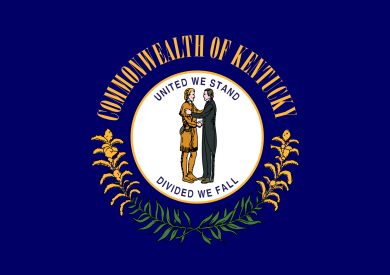
 Popular Cities For Lending in Kentucky
Popular Cities For Lending in Kentucky
Georgetown
Henderson
Hopkinsville
Independence
Jeffersontown
Lexington
Louisville
Nicholasville
Owensboro
Richmond
In the Kentucky real estate market, grabbing properties before your competition is essential for making the best deals. Although real estate investors sometimes go the traditional route and seek bank loans, the process is anything but speedy.
When time is of the essence, waiting for the lengthy process of getting approval is not an option for most investors. Kentucky hard money lenders specialize in providing hard money loans which provide quick funds to investors. These loans are for a non owner occupied property or in some cases for business purpose loans.
Kentucky Hard Money Lender FAQ’S
Below are some of the most frequently asked questions we get regarding hard money loans and lenders in Kentucky.
What Do Kentucky Hard Money Lenders Specialize in?
Kentucky hard money lenders specialize in providing short-term, creative financing for real estate investors. If you seek a conventional lender to purchase an investment property, your loan request will be based on the property’s value and your assets. Your credit score, job, and finances will be scrutinized intensely. Hard money lenders base their final loan decisions on the after-repair value. The ARV represents the potential value of a property after all repairs have been accomplished.
What are the Benefits of Kentucky Hard Money Loans?
Kentucky hard money loans offer advantages that traditional banks cannot. Lenders like Acamnet Financial offer a higher level of flexibility than banks. When qualifying for this type of loan, lenders do not delve too deeply into the finances of real estate investors. In most cases, simply present the property and your plans, which saves you the hassle of gathering countless financial documents.
Do Kentucky Hard Money Lenders Look at my Credit Score?
One of the greatest benefits of working with Kentucky hard money lenders is the lack of credit score requirements. One of the first things a bank does is check your credit score. You can get approved for a hard money loan in Kentucky even if you have bad credit or poor credit, bankruptcies, and foreclosures in the past. Kentucky Hard money lenders primarily care about the property you are purchasing.
What is the Interest Rate & Points for Hard Money Loans in Kentucky?
Interest rates for hard money loans in Kentucky are typically higher than traditional bank loans (conventional loans) because of the greater risk lenders must take on when approving loans. When searching for a hard money lender near me in Kentucky, you will find average interest rate is between 8%-15%. You should also be aware that lenders sometimes charge points that are meant to offset their administrative costs. Each point represents 1% of the total loan amount. The average points lenders charge is between 1 to 3. Some lenders may charge up to 10 points. These points are due upfront or at closing, depending on the lender.
What Should I Look for in a Kentucky Hard Money Lender?
There are many benefits to working with a Kentucky hard money lender. You just need to make sure you are working with the right lender. You can rely on Acamnet Financial Group when you need us most. We offer reliability, consistency, experience, and support. As a real estate investor, you know the importance of grabbing the best property deals when they become available.
How can Hard Money Lenders in Kentucky Help Me?
Whether you are new to real estate and real estate projects or an old pro, you know having the capital to purchase real estate is essential. Without funds, you will miss out on real estate transactions. When you partner with hard money lenders in Kentucky, you will quickly get the money you need without jumping through the hoops of traditional bank lenders.
How do I get a Hard Money Loan in Kentucky?
When you want a hard money loan in Kentucky, begin by preparing the property information. Location, size, purchase price, after repair value, repair costs, etc. In most cases, the financing will be based on these numbers. Then, apply for a hard money loan in Kentucky using this information and supply some financial information. Then, an appraisal will be ordered to assess the loan-to-value ratio, which will influence the loan amount.
How do I Refinance a Kentucky Hard Money Loan?
Refinance a Kentucky hard money loan will involve moving from a high interest, short term loan to a longer term, usually lower interest rate loan. Typically a conventional type of loan. When refinancing a Kentucky hard money loan you will find it will have a more stringent set of guidelines. You will need to have sufficient credit and income qualifications. As the lending landscaping and regulations constantly change, you want to consult a knowledgeable conventional loan expert.

Current Real Estate Trends In Kentucky (2025)
The real estate market in Kentucky has been resilient and growing in recent years, showing a 16% increase in sales volume from 2020 to 2021. This amounts to a total of $14.3 billion, representing a doubling of sales over the last five years.
Nonetheless, certain signs indicate the market may be slowing down. Surveys among Kentucky REALTORS have revealed a decrease in expected price increases and an increased anticipation of longer market time. Furthermore, buyer demand has decreased, with homes staying on the market for longer and fewer buyers willing to pay above asking price.
Despite this, the increased housing inventory has resulted in more affordability and favorable conditions for sellers. Experts believe the market will slow, but without a crash, and Kentucky is expected to fare better compared to other parts of the country.
This article will examine the current state of the real estate market in Kentucky, looking at housing market performance, buyer and seller activity, and future projections.
Housing Market Performance
Recent years have seen a surge in housing market activity in Kentucky.
In 2021, sales volume reached an impressive $14.3 billion, significantly higher than 2020 and double the amount from 2016.
These figures demonstrate a positive trend in the real estate sector of the state.
Buyer and Seller Activity
The housing market in Kentucky is undergoing a transformation, with professionals in the industry feeling cautiously hopeful. Recent data reveals that buyer demand has weakened, with homes staying on the market longer and fewer buyers paying above the asking price.
However, the number of available houses has risen, leading to more affordability and better market conditions for sellers.
Economists don’t expect a crash, instead forecasting that mortgage rates should stay about the same and more buyers will enter the market gradually.
Future Predictions
The Kentucky housing market is set to experience a slowdown in the coming years, with economists predicting stable mortgage rates and increased buyer activity. Home prices may be expected to decrease due to limited demand and raised mortgage rates, while inventory levels will remain low due to strong demand from millennials and Hispanics. Newly constructed houses will be in limited supply, making prices remain stable.
Mortgage rates are predicted to be steady, which will allow buyers to purchase homes with more certainty. Inventory levels are likely to remain low due to high demand from millennials and Hispanics, who are increasingly entering the housing market.
With the potential for steady mortgage rates and gradual increase in buyer activity, the Kentucky housing market is set to experience a slowdown in the coming years. Home prices may be expected to decrease due to limited demand and raised mortgage rates, while inventory levels will remain low due to strong demand from millennials and Hispanics. Newly constructed houses will be in limited supply, making prices remain stable. Buyers will have the opportunity to purchase homes with more certainty as mortgage rates remain steady.
Sources
https://www.lanereport.com/158477/2022/08/kentucky-housing-market-is-shifting/
https://kyrealtors.com/kentucky-housing-statistics/
https://www.houzeo.com/blog/kentucky-real-estate-market/

All About Kentucky
Kentucky, the 15th state to join the Union, is a region with a diverse economy and a rich historical background. Initially recognized for its fertile pastures and thriving thoroughbred horse industry, Kentucky has expanded its initiatives to include auto manufacturing, energy fuel production, and medical facilities.
The state ranks 4th in the US for automobile and truck assembly and is a significant center for the tobacco industry. Moreover, Kentucky is home to Mammoth Cave National Park, which boasts the most extended cave system globally, as well as an extensive network of navigable waterways and streams.
The name ‘Kentucky’ etymology remains uncertain, with various theories suggesting Native American origins or linguistic corruptions. The state has a long history of Native American settlement, dating back to 9500 BCE, and European exploration and settlement began in the 17th century. Kentucky’s journey towards statehood encountered conflicts with Native Americans and political struggles before officially achieving statehood in 1792.
Today, Kentucky is renowned for its contributions to horse racing, bourbon production, bluegrass music, and college basketball, as well as its landmarks and industries like automobile manufacturing and Louisville Slugger baseball bats.
Kentucky’s History
Kentucky’s history encompasses the exploration and settlement by European explorers, conflicts with Native American tribes, struggles for statehood, and its role in the plantation economy and the Civil War.
The state’s rich and diverse history is a testament to its significance in shaping the United States. From the early explorations by French and English settlers to the expeditions of Daniel Boone, Kentucky played a pivotal role in the country’s westward expansion.
The conflicts with Native American tribes, particularly the Cherokee-American Wars, highlight the challenges faced by early settlers. Furthermore, Kentucky’s struggle for statehood and its divided loyalties during the Civil War showcase its complex political and social landscape.
Moving forward, Kentucky’s economy and industries have played a crucial role in shaping the state’s development.
Economy and Industries
The state’s diverse economy encompasses various industries, including auto manufacturing, energy fuel production, and medical facilities. Kentucky has expanded beyond its agricultural roots to become a significant player in these sectors.
The state ranks 4th among US states in the number of automobiles and trucks assembled, making it a major center for auto manufacturing. Kentucky is also a leading producer of energy fuels, with coal mining playing a significant role in the state’s economy.
In addition, the state boasts a robust medical industry, with numerous hospitals and medical facilities providing quality healthcare services.
This diverse economic landscape has contributed to the growth and development of Kentucky, making it a dynamic and thriving state.
Moving on to the next section, let’s explore the geography and borders of Kentucky.
Geography and Borders
Situated in the Upland South and part of Appalachia, Kentucky borders seven states, forming a unique geographical location with diverse surroundings.
With the Ohio River forming its northern border and the Mississippi River forming its western border, Kentucky boasts a rich tapestry of natural beauty and waterways.
The state is home to the Kentucky Bend, a non-contiguous part surrounded by Missouri and Tennessee, and can only be accessed through Tennessee.
Kentucky’s geography is characterized by its five primary regions: the Cumberland Plateau, Bluegrass, Pennyroyal Plateau, Western Coal Fields, and Jackson Purchase.
Each region offers distinct landscapes, from the rolling hills and fertile pastures of the Bluegrass region to the rugged beauty of the Cumberland Plateau.
This diverse geography has shaped Kentucky’s cultural significance, providing a stunning backdrop for the state’s iconic landmarks and industries.
Cultural Significance
Renowned for its iconic landmarks and industries, Kentucky’s cultural significance extends far beyond its borders. The Bluegrass State is widely recognized for its horse racing industry, with the world-famous Kentucky Derby drawing crowds from around the globe.
Bourbon, another cultural hallmark, is produced in Kentucky and has gained international acclaim for its distinctive flavor. The state’s rich musical heritage is evident in its contribution to the development of bluegrass music, which has influenced genres such as country and rock.
Kentucky’s love for college basketball is legendary, with the annual rivalry between the University of Kentucky and the University of Louisville captivating fans across the state. Furthermore, Kentucky’s historical contributions to automobile manufacturing and the production of Louisville Slugger baseball bats have left an indelible mark on American culture.
Transitioning into the next section about the Civil War and Reconstruction, Kentucky’s cultural legacy was deeply impacted by the following conflicts.
Civil War and Reconstruction
During the Civil War and Reconstruction period, Kentucky’s allegiance to the Union remained uncertain as it declared neutrality but ultimately joined the Confederacy, leading to a complex and divided social and political landscape.
Kentucky’s strategic location between the North and the South made it a crucial battleground, with Union and Confederate forces vying for control.
The state’s divided loyalties caused deep divisions among its residents, with families and communities torn apart by conflicting allegiances.
Reconstruction brought further challenges as Kentucky struggled to rebuild its economy and reconcile its war-torn society.
The assassination of Governor William Goebel in 1900 and the Black Patch Tobacco Wars in the early 20th century added to the turmoil.
Despite these challenges, Kentucky’s resilience and determination paved the way for a new era of growth and development in the state.


 Popular Cities For Lending in Kentucky
Popular Cities For Lending in Kentucky